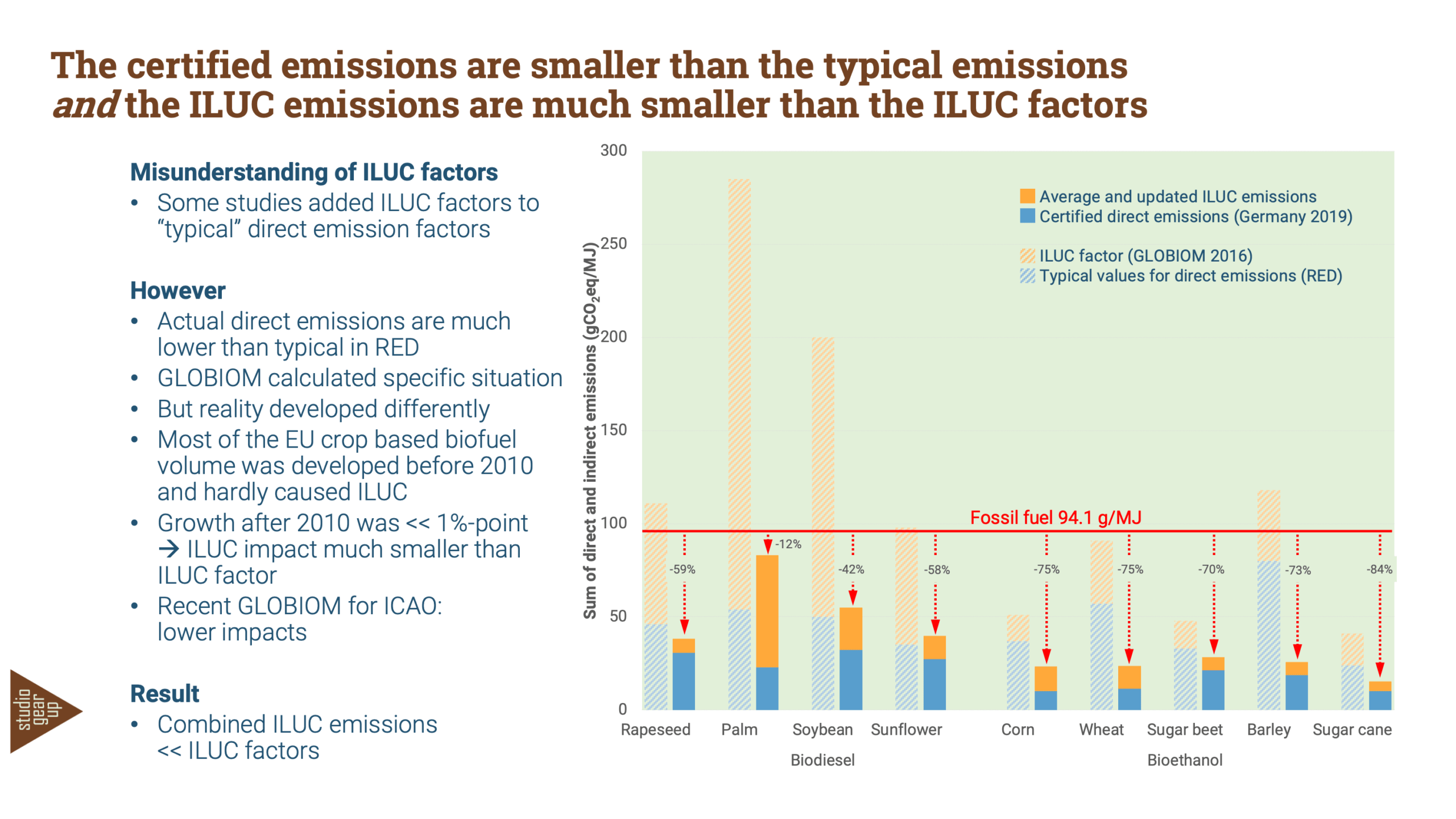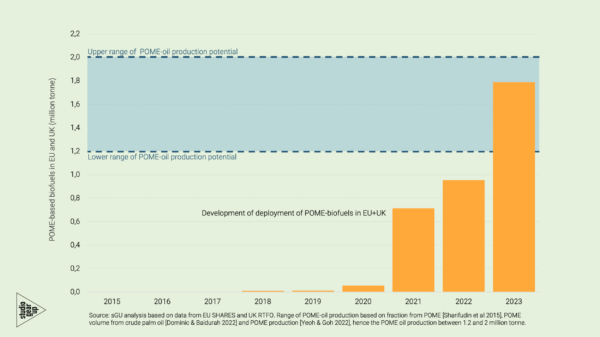For: VDB – Verband der Deutschen Biokraftstoffindustrie e.V.
[March – April 2021]
The most complex topic related to the sustainability of biofuels is Indirect Land Use Change, or ILUC. This is, simply said, the rippling effect that an increasing demand for biofuels feedstock can have in global agriculture, and which could lead to land expansion and deforestation elsewhere, with the subsequent effect of carbon emissions. When additional biofuels increase demand for the crops grown on existing agricultural land, this additional demand could constrain supply, and thereby increase prices globally for those crops. The prospects of higher crop prices could trigger the clearing of high carbon stock land for additional agriculture. This effect is called ILUC.
ILUC is not measurable as it takes place via complex economic interactions and is manifested only in small variations on the large dynamics of the global agriculture system. ILUC can only be analysed through detailed modelling. One of the most prominent studies on ILUC was the 2015 GLOBIOM study. Unlike how the GLOBIOM modeling results can be used, some publications used these calculated ILUC emissions by simply adding these on top of direct emissions and it was concluded that overall savings were limited. This is unfortunately a misconception of the modelling results.
The current study explains how the direct greenhouse gas emission performance of biofuels developed over time, in how far the indirect effects that were predicted have come true, and how these indirect emissions should be accounted to understand the overall greenhouse gas savings.
Specifically, the study assesses the performance of biofuels in the German market, and concludes that the overall savings achieved by the application of biofuels are considerable, even when accounting for indirect emissions.
Report “Greenhouse gas savings from biofuels in Germany”
The report can be found here.
Presentation at Fuels of the Future 2022, 24 January 2022
24 January 2022 the main findings were presented during the Fuels of the Future 2022 Conference, held (online) in Berlin. A PDF of the presentation is found here.
The following slide shows how the actual, certified emissions prove lower from the typical values given in RED and how the updated ILUC emissions are much lower than the previously ILUC factors, modelled in 2016.




